Fluke Networks Copper & Fibre Data Cable Testers
Discover essential insights on Copper Fibre Data Cable testers, including features, benefits, and best practices. Read the article for expert guidance.
Find out more about Fluke Networks Copper & Fibre Data Cable Testers below.
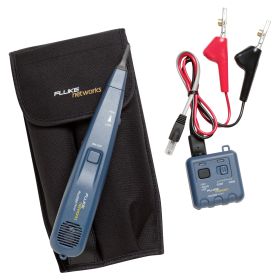

- SmartTone technology
- Continuity testing
- Line polarity confirmation
- Quick-twist tip
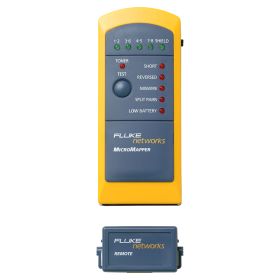

- Verifies wiremaps
- One-person testing
- Easy-to-read fault display
- Debug mode
- Auto-sleep mode
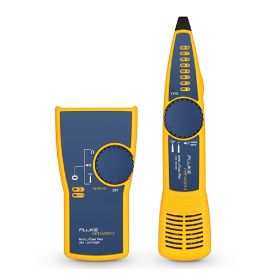

- Toner and probe for tracing and locating cables
- Identify specific cables in a bundle or on a patch panel or switch
- Detect faults such as opens, shorts, and reversed pairs
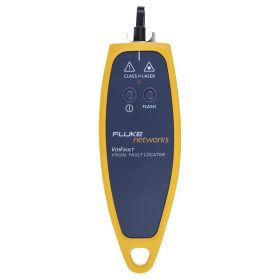

- Optional FiberLert Detector
- Laser-powered visual fault detection
- Performs end-to-end continuity checks
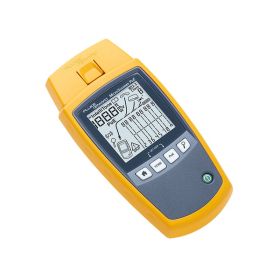

- Two models available: MicroScanner PoE and MicroScanner 2
- Four versions to choose from
- IntelliTone: trace most cable and wire pairs
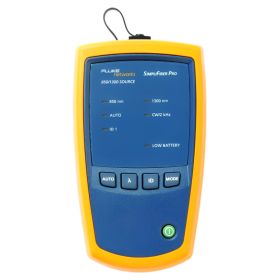

- Fiber Inspection
- Fiber Cleaning
- Results Management
- Verify and Locate Faults
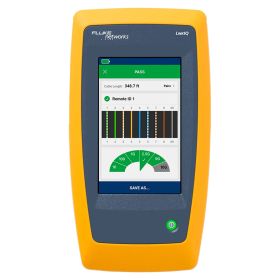

- Verify the performance of copper cables up to 10G
- PASS/FAIL assessment
- Large, colour, touchscreen display
- Advanced Kit available
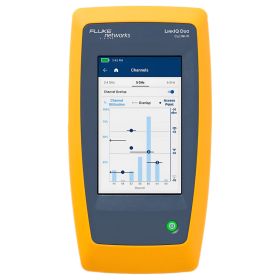

- Internal antenna for Wi-Fi radio
- Large, colour, touchscreen display
- Save up to 1000 results
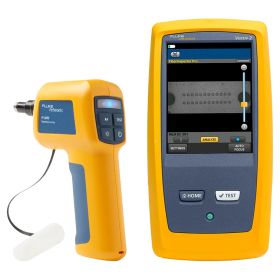

- AutoFocus and AutoCentering
- Total MPO visibility
- Integrates with Versiv and LinkWare
- Auto-off function
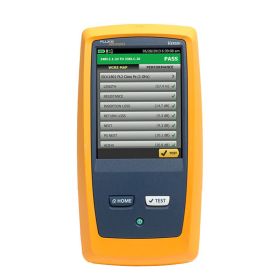

- Pinpoint crosstalk, return loss, or shield faults
- Store up to 12,000 test results with full graphics
- Three versions available
What Are Fluke Networks Copper & Fibre Data Cable Testers?
Fluke Networks' testers are handheld instruments designed to assess the integrity and performance of copper and fibre optic cablings. These tools are essential for network installers, IT professionals, and maintenance teams to ensure the integrity and performance of communication infrastructures.
What Do These Testers Measure?
Fluke Networks' testers can assess various parameters to validate cable installations:
- Wire Mapping: Identifies miswires, shorts, opens, and split pairs in copper cables.
- Signal Integrity: Measures attenuation, crosstalk, and return loss to ensure data transmission quality.
- Bandwidth Verification: Tests the cable's ability to support specific network speeds, such as Gigabit Ethernet.
- Power over Ethernet (PoE) Testing: Verifies the presence and strength of PoE to ensure devices receive adequate power.
- Fibre Optic Loss Measurement: Assesses insertion loss and optical return loss in fibre cables.
- Optical Time Domain Reflectometry (OTDR): Locates faults, splices, and connectors in fibre optic links.
How Do Fluke Networks Cable Testers Work?
A Fluke Networks data cable tester works by transmitting test signals through network cables to check for correct wiring, performance, and compliance with industry standards. Using a main unit and often a remote unit, it verifies continuity, detects issues like opens, shorts, or split pairs, and measures cable length and performance metrics such as crosstalk and return loss. Some advanced models, like the Fluke DSX Cable Analyser, also certify copper and fibre optic cables for high-speed networks. Results are shown on a screen with pass/fail indicators, and can be saved or exported for documentation and certification purposes.
Applications of Fluke Networks Data Cable Testers
These testers are utilised in various scenarios:
- Network Installation: Certifying new cabling installations to meet performance standards.
- Troubleshooting: Diagnosing and locating faults in existing network infrastructures.
- Maintenance: Regular testing to prevent network downtime and ensure consistent performance.
- Data Centres: Ensuring high-speed data transmission and network reliability.
- Telecommunications: Validating service quality and diagnosing connectivity problems.
Fluke Networks' data cable testers are integral for maintaining reliable and efficient network systems across various industries.


